Search
Search Results
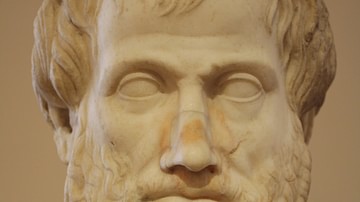
Definition
Aristotle
Aristotle of Stagira (l. 384-322 BCE) was a Greek philosopher who pioneered systematic, scientific examination in literally every area of human knowledge and was known, in his time, as "the man who knew everything" and later simply as "The...
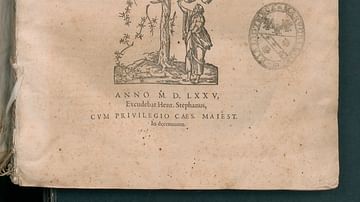
Definition
Arrian
Lucius Flavius Arrianus, commonly known as Arrian (86 - c. 160 CE) was a Greek historian, philosopher, and statesman from Nicomedia, capital of the Roman province of Bithynia. Arrian is recognized as one of the most renowned authors of the...
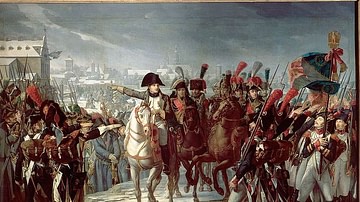
Definition
War of the Third Coalition
The War of the Third Coalition (1805-1806) was a major European conflict during the Napoleonic Wars (1803-1815). It was fought by an alliance of nations that included the United Kingdom, Russia, Austria, Sweden, Naples, and Sicily, against...
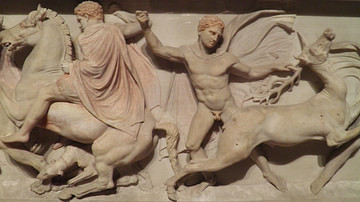
Image
Alexander Sarcophagus (detail)
The Alexander Sarcophagus is a late 4th century BCE stone sarcophagus adorned with bas-relief carvings of Alexander the Great. The Alexander Sarcophagus is one of four massive carved sarcophagi, forming two pairs, that were discovered during...
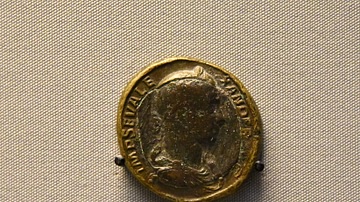
Image
Bimetallic Medallion of Emperor Severus Alexander
Medallions with designs similar to coins could be worn as a symbol of allegiance, or given as prestigious gifts. They were specifically intended to be attractive, as display or presentation pieces. Bimetallic medallion of the Roman Emperor...

Definition
Persepolis
Persepolis was the capital of the Persian Achaemenid Empire from the reign of Darius I (the Great, r. 522-486 BCE) until its destruction in 330 BCE. Its name comes from the Greek Perses-polis (Persian City), but the Persians knew it as Parsa...

Video
Olympias: Mother to Alexander the Great and Second Wife of Phillip II of Macedon
Olympias, born with the name Myrtle, was the daughter of Neoptolemus, the king of Epirus, which was a Greek kingdom southwest of Macedonia and became the second wife of Philip II of Macedon, and is probably best known as the mother of Alexander...

Image
Wall Block Inscribed with the Name of Alexander the Great
Marble wall block from the temple of Athena Polias at Priene, inscribed with the name of Alexander the Great, c. 334-330 BCE. The British Museum, London. Around 340 BCE, the inhabitants of Priene were laying out their new city, terraced...
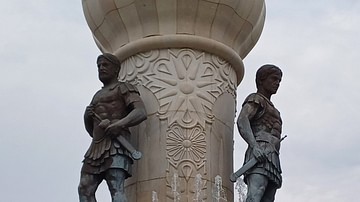
Image
Colossal Statues of Philip II and Alexander III in Skopje
Colossal statues of Philip II of Macedon (r. 359-336 BCE) and Alexander the Great (r. 336-323 BCE) in Skopje. The Skopje 2014 (2010-2014) was a project involving the construction of 136 monumental buildings, bridges, statues, and fountains...
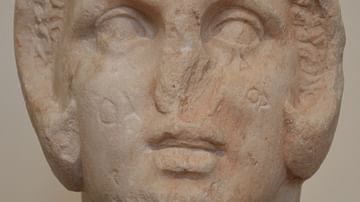
Image
Alexander the Great
Marble head of Alexander the Great, found in the Kerameikos in Athens, c. 300 BCE. Alexander wears the lion’s pelt, a common iconographic feature in depictions of the young king on coins, which hints at his descent from the mythical hero...